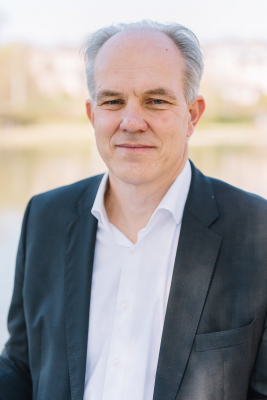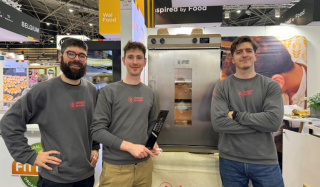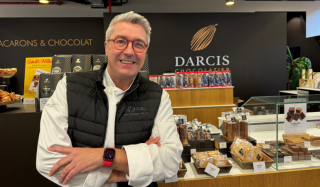
Japan, where a royal mission is currently taking place with 51 Walloon companies, is facing the same challenges as European countries in terms of energy transition. Namely, how to move towards decarbonisation (zero CO² emissions) without relying on fossil-fuel based power plants while ensuring the security of supply? Several companies in Wallonia are proposing innovative solutions to achieve this. Notably with deeptech company N-SIDE, established in Louvain-la-Neuve, whose cutting-edge software optimises the management of electricity networks and thus accelerates the transition to renewable energy and electrification.
Interview from Tokyo with Philippe Chevalier, Professor of Operations Research at the University of Louvain, expert in AI for energy and CEO of N-SIDE

Mr Chevalier, we are hearing more and more about decarbonisation, but what exactly does it mean?
Decarbonation or decarbonisation means no longer emitting CO² for all economic activities. This comes mainly from the energy we produce and in particular from heating, representing about 20% of the usage, which is huge. In Belgium, even if you insulate very well, you will still need heating in winter. If we burn 1 calorie of gas or hydrocarbon we obtain 1 calorie of heat. However, with a heat pump, 1 electric calorie gives 3 or 4 calories of heat. This triples the efficiency and leads to a lower energy consumption.. Therefore, if we use renewable energy to produce the electricity needed to operate the heat pump, we don't emit any CO² at all.
So the solution to achieving the Paris Agreement's objectives of zero emissions by 2050 is electrification ?
Yes, all the experts agree. The use of electricity is set to triple by 2030-2035 (preferably from renewable sources like wind or solar, which also entails a greater variation in flows). This means that 3 times more electricity will flow over the same lines, which will be under increasing voltage. Blackout and supply problems do not come from power plant failures but from the network which trips due to congestions. The grids as we know them today are not built to accommodate the rise in decentralised power generation and consumption.
However, creating new power lines is very expensive and causes many inconveniences (for both local residents and in agricultural areas). Underground lines, which are obviously less restrictive for inhabitants, cost ten times more than high-voltage lines. The solution therefore lies first and foremost in a better management of these lines.
How can we manage more flows in a smarter way?
Artificial intelligence plays a central role in the complex management of network utilisation: it provides more dynamic forecasts and real-time information about network capacity. The increase in renewable energies has made the system much more dynamic and variable than previously, when production generated by power plants (coal, gas, nuclear) was stable. Today, renewable energy production (solar, wind) depends on the weather.
N-SIDE has developed mathematical algorithms and AI technologies to help infrastructure providers adapt to this variability and ensure the resilience of the power grid.
We already operate the clearing (smart management of electricity markets) for many European countries. We have won several tenders in the United Kingdom as well as with the largest Indian electricity exchange. Since the creation of N-SIDE in 2000, we have signed contracts with many leading companies around the world. 80% of our turnover is made abroad.
You are currently in Japan, are the Japanese interested in your solutions too?
Yes, we have had several very promising meetings. Japan is very similar to Europe in its approach to climate issues and this energy discussion. They also want to stop relying on conventional power plants (coal and gas-fired, but also nuclear since Fukushima) in the long term and strongly increase the use of renewable energy.
Moreover, neither Japan nor Belgium have their own energy resources and we see that Japan is inhabited in the same way as Belgium, with large areas of dense population. This has an impact on the way the energy network is configured and managed. This is why I am pleased to be part of this economic mission to discuss our mutual challenges.
Are there any other Walloon-based companies who can help the Japanese in this energy discussion?
Yes, many. During the panel discussion I led in Tokyo on decarbonisation, I-Care, which specialises in maintenance optimisation, was also present. Their solution reduces oil changes on machines by seven times, offering productivity gains while ensuring safety and a greatly reduced impact on waste. Also participating in the panel was the Liège-based company PEPITe, which offers AI models to help companies make the most of their data. Wallonia has a lot to offer to Japan which recognises and appreciates the quality of our workforce but also our research skills. There are many of us here including a large panel of academic and research representatives from the Walloon-Brussels Federation. The discussions we have had with our Japanese counterparts have been very rich and are a good omen for the future.
Portrait picture: copyright Thomas Beauduin
Illustration picture: copyright N-SIDE







